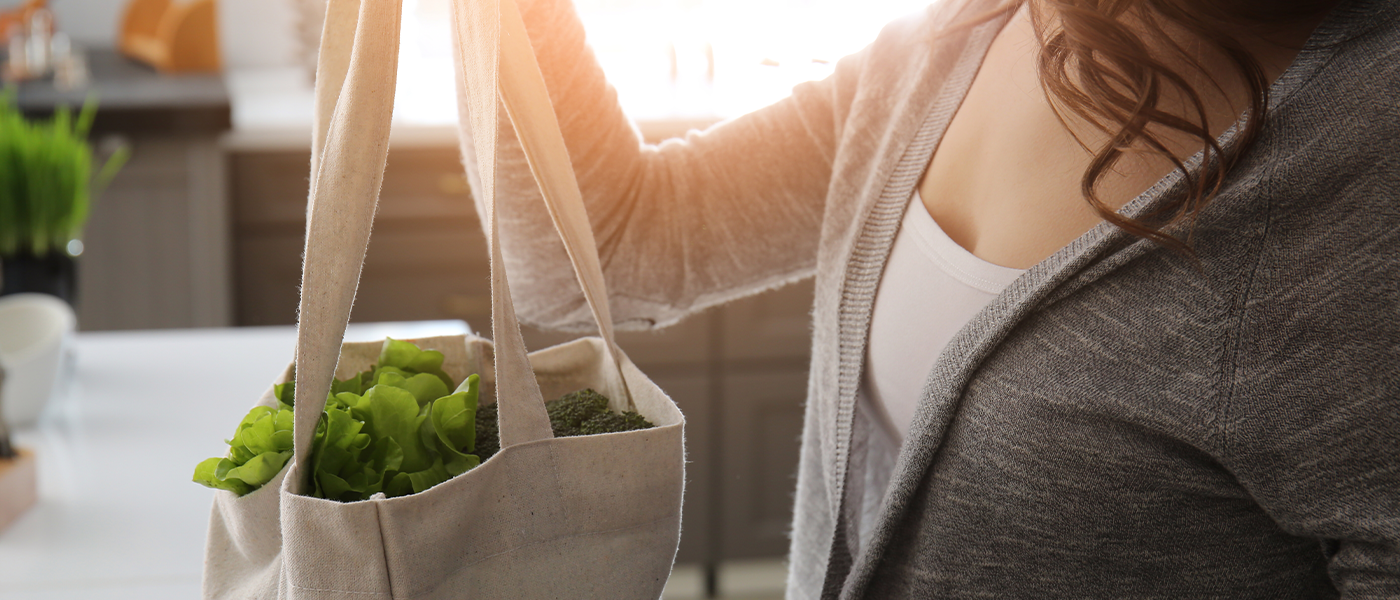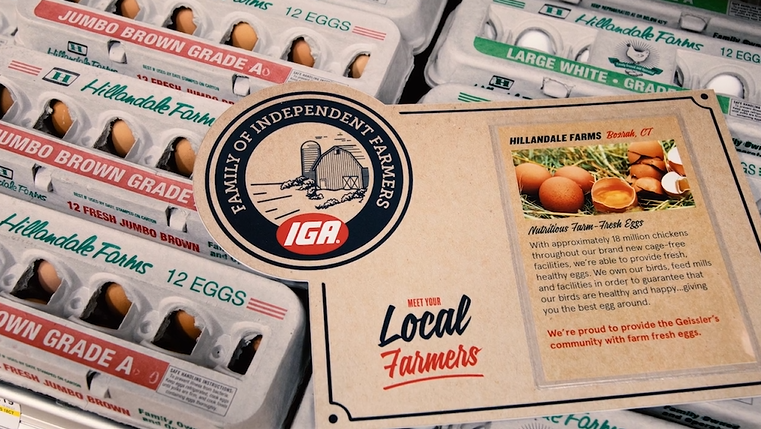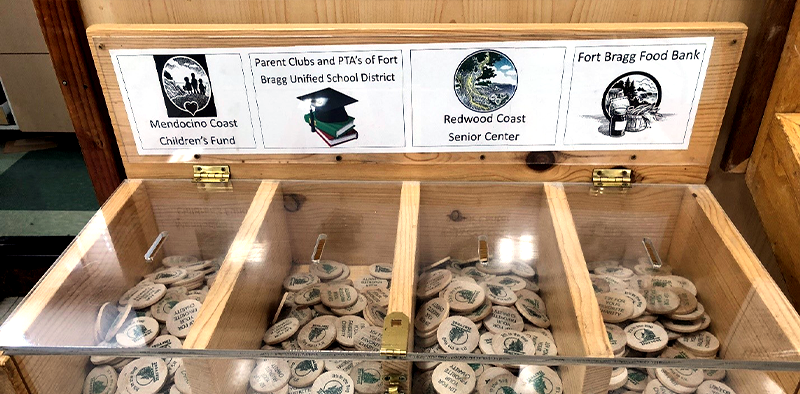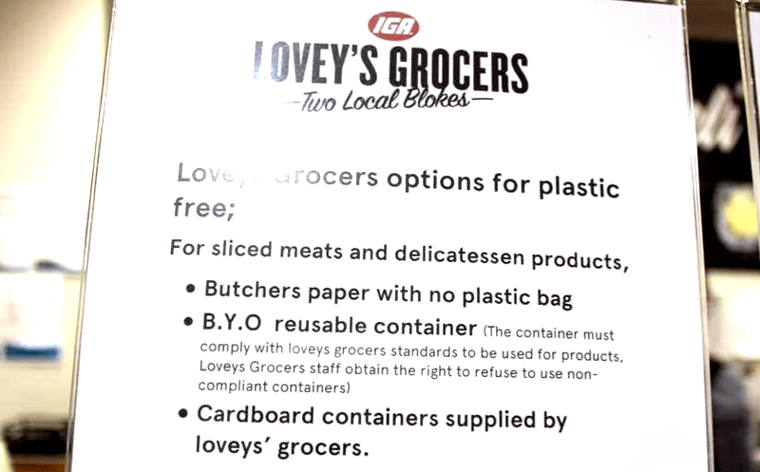Help Isom IGA recover from devasting floods

Earlier this year we looked at how “greening” your store can be both good for the planet and your business, demonstrating that many eco-friendly upgrades—from energy-efficient lighting to geothermal heating and cooling—can also lower operating costs. Turns out, reduced costs are only half of the sustainability equation that affects your bottom line; your commitment to sustainability can also go a long way toward increasing shopper loyalty and sales.
According to a recent survey of consumers, 96 percent of people feel their own actions—like donating, recycling, or buying ethically—can make a difference. But here's the kicker—the same consumers expect you to play a role in their efforts. Much like how shoppers have been saying for years that they want grocery stores to help them make better choices surrounding health and wellness, 88 percent now say they also want the brands they shop to help them be more sustainable in their daily lives.
In the end, it all comes down to leading with purpose. Today, 7 out of 10 Americans expect companies to connect with them emotionally on issues that matter to them personally, and nearly half say they would be willing to pay more for a product from a purpose-driven brand—like one that shares their values on sustainability.
So how do you let shoppers know you’re committed to helping them make the sustainable choices that are important to them? Check out these three simple (and inexpensive) suggestions to demonstrate your commitment to sustainability and help your shoppers act on theirs.
- Tell your local story.
Buying local is a popular choice among sustainable shoppers for two reasons: it saves the fuel it would take trucks to drive produce, meat, dairy, and eggs to your store, and also decreases the length of time food must be refrigerated.
And while most IGA retailers are already offering a significant number of local products, it’s important to remember that you only get the halo effect if shoppers know about it, says IGA CEO John Ross.
“When you shop an IGA store, you’re not driving 30 minutes to a larger community to shop a cookie-cutter supercenter,” Ross says. “You’re shopping within your local community in a store that sells local products whenever possible, which translates to fresher, healthier, more sustainable choices for shoppers. The key is telling that story to your shoppers.”
That’s exactly the intent of IGA’s Local Equals Fresh visual merchandising, which helps IGA retailers identify local products and shares the story of local farmers and makers.
Geissler’s, a fourth-generation family-run business with seven stores in Connecticut and Massachusetts, was the subject of a video produced in partnership with their distributor, Bozzuto’s, and IGA, along with the help of Porchlight, IGA’s partner in creating the Local Equals Fresh design. The finished product highlights the store—outfitted with Local Equals Fresh signage—and showcases some of the relationships Geissler’s has forged with local farmers and makers of value-added food products, such as applesauce from an area orchard and eggs from nearby Hillandale Farms.

According to Geissler’s President Robert Rybick, the Local Equals Fresh concept was a perfect fit. “To be honest, I was thrilled with it. I knew we needed to tell the story better to our customers and I saw this as an opportunity to do that,” he says.
Real Value IGA in Grenada, which has a similar focus on local offerings, is using a unique process for connecting with farmers: they post weekly requests for the produce they need on the store's Facebook page.
Geissler’s takes advantage of its ties to the community to identify new local partners. Director of Sales and Marketing Kevin Brouillard has many years of experience working in this arena, which helps, says Rybick. In addition, “it’s a matter of searching the market, farmers markets, etc. to find prospective partners. From there, it’s calling the vendor meeting and just simply laying out a mutually beneficial plan,” he says.
- Offer an alternative to plastic bags.
In June of last year, IGA Australia demonstrated their commitment to protecting the environment by eliminating single-use plastic bags at checkouts in all of their 1,400 independently-owned stores. Many IGA Australia retailers were already working within their stores to curb plastic bag use before the year-long phaseout began. One of the first, IGA Bingara, banned plastic bags in 2010 in response to customers’ environmental concerns.
“There are lots of supermarket owners around the world and not too many can say they were one of the first to ban plastic bags at checkout. So if I had a legacy in the industry that would probably be it,” says Store Owner John Bishton, in a short video produced by IGA.
Bishton, who gave away green bags for the first few weeks so customers weren’t inconvenienced, also uses cardboard boxes for customer carryout, which means less cardboard to recycle.“We’re only a small IGA but we’re saving roughly 150,000 bags a year,” he says. “There’s been a savings to our store, but ultimately it’s the environment that is saved in the long run.”
In the United States, we go through around 100 billion plastic bags per year, costing retailers an estimated $4 billion annually. With a number of states and municipalities banning single-use plastic bags, now’s a great time to begin offering plastic bag alternatives and incentivizing their use. Many grocery stores have a “bring your own bag” credit (anywhere from a penny to 10 cents per bag), and others, like Harvest Market IGA, have found creative ways to offset the bag fees instituted by state and local governments.
When California banned single-use plastic bags and instituted a 10-cent bag fee for recycled paper bags, reusable plastic bags, and compostable bags available in grocery stores, Harvest Market IGA Store Owner Jennifer Bosma decided to engage the community and find a way to give the money back to local charitable organizations.
“We had custom 10-cent wooden tokens made for the store, and we hand one to a shopper every time they purchase and/or bring their own reusable bag,” Bosma says. “As they walk out of the store, they can deposit their token into one of our boxes, each representing a local charity. At the end of the month we count all the tokens in each box and make a donation.”
Bosma says any negative feelings about the bag fee stopped as shoppers understood the charity angle, and the store has raised well over $250,000 for local charities. Read the best practice to learn more.

- Offer an alternative to plastic containers.
Speaking of plastic, a recent Nielsen study found that 48 percent of responders “actively seek products with minimum packaging,” which would explain why Trader Joe’s recently introduced a plan to swap out traditional clamshell berry containers with biodegradable and recycled materials in a move that’s expected to reduce plastic use by 4 million pounds this year alone.
You can do your part to curb your store’s plastic use by replacing plastic deli and bulk food containers and Styrofoam cups with more environmentally-friendly options, which may even have the added benefit of increasing sales. According to an article in Progressive Grocer, Ohio-based independent Dorothy Lane Markets swapped out their plastic pie containers for cardboard and sold 1,200 more pies than the previous year. They recently switched to cardboard window boxes for their store-made muffins, too.
If you’re not ready to commit to a change to your store-provided packaging, consider letting your shoppers bring in their own containers for coffee, deli meats, and even ready-to-eat options.
Store Manager Craig Stephenson advertises plastic-free deli options at Lovey’s IGA in Australia, where products are weighed first, then placed in the customer’s container, and shoppers are given the scannable sticker to present at the register.

"We did our homework with the NSW Food Authority before we started, who said there was absolutely no reason why we can't do it, but we have to be careful and we reserve the right to refuse to use people's containers,” he says.
Here in the U.S., be sure to contact your local health inspector before allowing customers to use their own containers.
Looking for reusable bag options? IGA Red Oval partner Ashgrove Media has just introduced a new Local Equals Fresh-branded reusable tote bag. Click here learn more and order.
No Comments Yet
Let us know what you think